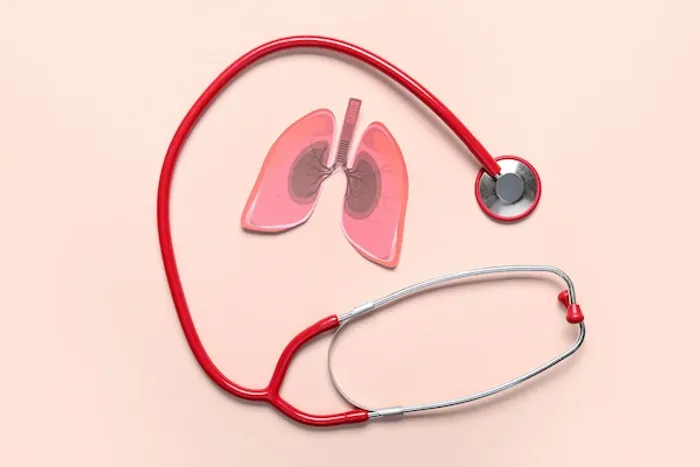Health Tests every Smokers should consider
Smokers are at higher risk for lung, heart, and metabolic issues, often without early symptoms. Discover the essential health tests every smoker should take to detect problems early and protect long-term health.

Written by Dr. Dhankecha Mayank Dineshbhai
Reviewed by Dr. D Bhanu Prakash MBBS, AFIH, Advanced certificate in critical care medicine, Fellowship in critical care medicine
Last updated on 9th Sep, 2025

Lighting up a cigarette might seem like a momentary escape, something to ease stress or offer a brief sense of calm. But over time, smoking leaves a lasting impact on nearly every system in the body. It quietly damages your lungs, strains your heart, disrupts your metabolism, and lowers your immune system's effectiveness. What makes it especially dangerous is that many of these effects often go unnoticed until they develop into serious health issues.
Even if you don't feel any immediate symptoms, that doesn't mean all is well beneath the surface. Smokers are at a significantly higher risk of developing conditions like chronic bronchitis, cardiovascular disease, diabetes, and various forms of cancer. That's why it's crucial not to wait for warning signs to appear.
This article highlights the most important medical tests that smokers should undergo, whether they're currently smoking or have quit recently.
Why Smokers Need Routine Testing
Cigarette smoke introduces harmful substances that affect your organs over time. Conditions linked to smoking include:
- Chronic respiratory illnesses like bronchitis and COPD
- Cardiovascular diseases, such as high blood pressure and heart attacks
- Cancers of the lungs, oral cavity, bladder, and throat
- Suppressed immunity and slower wound healing
- Blood sugar imbalances and type 2 diabetes
- Thickened blood and increased risk of clots and strokes
What makes these conditions more dangerous is their silent progression. In many smokers, the damage builds slowly without causing noticeable symptoms at first. This is why routine health screenings are essential. Below is a curated list of medical tests that offer valuable insights into your respiratory, cardiovascular, metabolic, and overall health.
1. Spirometry (Pulmonary Function Test)
What It Does: Measures how well your lungs can inhale and exhale air under effort.
Why It Matters: Smoking is the leading cause of COPD conditions that progressively limit airflow and damage the lungs. Spirometry detects early signs of decline before noticeable problems, such as breathlessness or wheezing, develop.
Key Measurements:
- FVC (total air you can expel after taking a deep breath)
- FEV1 (amount of air blown out in the first second)
- FEV1/FVC ratio (used to assess airway obstruction)
When to Test: At least once every 1–2 years, or sooner if you experience a persistent cough, wheezing, or shortness of breath.
2. Lipid Profile (Cholesterol Panel)
What It Does: Analyses different types of fats in your blood—cholesterol and triglycerides.
Why It Matters: Smoking lowers HDL ("good") cholesterol while increasing LDL ("bad") cholesterol and triglycerides, which contribute to hardened and blocked arteries.
What's Included?
- Total cholesterol
- HDL & LDL cholesterol
- Triglyceride levels
When to Test: Once every year to monitor heart health.
3. High-sensitivity C-reactive protein (hs-CRP)
What It Does: Checks for low-level inflammation in your blood.
Why It Matters: Chronic inflammation—common among smokers—can contribute to heart disease and artery damage. Even with normal cholesterol levels, a raised hs-CRP may indicate an elevated cardiovascular risk.
When to Test: Every 1–2 years or as recommended based on your health status.
Get These Tests If You're Over 50
4. Cardiac Stress Test (Treadmill Test – TMT)
What It Does: Measures how your heart performs under physical exertion.
Why It Matters: Smoking promotes artery narrowing, reducing blood flow to the heart. A stress test can flag potential blockages before symptoms like chest pain or palpitations appear.
Who Should Test: Individuals over 40 who smoke or anyone experiencing chest discomfort, palpitations, or unexplained fatigue.
5. Diabetes Screening (Fasting Blood Sugar & HbA1c)
What It Does: Evaluates blood sugar levels and long-term glucose control.
Why It Matters: Smoking interferes with insulin, increasing your risk of type 2 diabetes. If untreated, diabetes significantly raises cardiovascular and kidney risk.
Tests Included:
- Fasting blood glucose
- HbA1c (represents average blood sugar over 2–3 months)
When to Test: At least annually or every 6 months if you're overweight or have a family history of diabetes.
6. Complete Blood Count (CBC)
What It Does: Provides an overview of your blood's health.
Why It Matters: Smoking can change red and white blood cell counts, affecting oxygen delivery, infection response, and inflammation levels.
What It Detects:
- Signs of anaemia
- Infection or inflammation
- Blood cell irregularities
When to Test: At least once a year.
Schedule a Complete Blood Profile Test
7. Vitamin D & B12 Tests
What They Do: Assess essential nutrients related to immunity and nerve function.
Why They Matter: Smokers often have low levels of vitamin D and B12, which can contribute to fatigue, poor immunity, and nerve issues.
When to Test: Every 1–2 years or earlier if you experience tiredness, weakness, or neurological signs.
8. Liver Function Test (LFT)
What It Does: Evaluates enzymes and other substances indicating liver health.
Why It Matters: Smoking combined with alcohol use stresses the liver, potentially causing early damage such as fatty deposits or inflammation.
Includes:
- SGOT / SGPT
- Bilirubin
- Alkaline phosphatase (ALP)
When to Test: Annually.
9. Kidney Function Test (KFT)
What It Does: Measures waste-filtering effectiveness in your kidneys.
Why It Matters: Smoking can damage kidney vessels, increasingly so with diabetes or hypertension.
Includes:
- Creatinine
- BUN (blood urea nitrogen)
- Electrolyte levels
When to Test: At least annually or more frequently for individuals at high risk.
10. Oral & Throat Cancer Screening
What It Does: Detects abnormal tissue in the mouth, tongue, or throat.
Why It Matters: Tobacco use significantly raises the risk of cancers in these areas. Early detection through visual exams and laryngoscopy improves outcomes.
May Include:
- Physical mouth and throat check
- Biopsy if required
- Laryngoscopic examination if symptoms persist
When to Test: Once a year.
11. Chest X-ray or Low‑Dose CT (LDCT) Scan
What It Does: Provides imaging of the lungs to detect early disease or nodules.
Why It Matters: Lung conditions, including cancer, often develop without symptoms. Imaging helps catch early signs before serious illness develops.
Who Should Test?
- Smokers age 40+
- Individuals with a 10+ year smoking history
- Anyone experiencing chronic cough, weight loss, or chest pain
Combo Test Package
Apollo 24|7 offers practical and affordable bundled packages designed for smokers:
- Smoker's Health Check
- Lung Health Package
- Advanced Full-Body Check
Signs Smokers Shouldn't Overlook
When you're a smoker, it's easy to brush off discomfort as something minor. However, specific symptoms could be your body's way of sounding an alarm. Pay close attention to:
- Ongoing cough or breathing trouble: A persistent cough or worsening shortness of breath could be signs of lung conditions like COPD or even the early stages of lung cancer.
- Chest pressure or an irregular heartbeat: Tightness, heaviness, or fluttering in your chest may point to heart strain or clogged arteries.
- Unusual fatigue or frequent dizziness: Constant tiredness without an apparent reason could mean your lungs or heart aren't delivering enough oxygen.
- Coughing up blood or experiencing a hoarse voice may signal irritation or changes in your airways or vocal cords, potentially due to cancer or chronic inflammation.
- Unexpected weight loss: Losing weight without making changes to your diet or lifestyle should always be investigated—it may reflect an underlying condition.
- Persistent throat irritation or swallowing issues: If your throat feels sore for weeks or swallowing becomes uncomfortable, it could be time for a closer look.
Simple Ways to Stay on Top of Your Health
Taking charge of your well-being doesn't mean overhauling everything overnight. Start with small, smart habits that help you monitor how your body's doing:
- Use a pulse oximeter: This tool measures how well your lungs are delivering oxygen. It's beneficial if you often feel short of breath.
- Keep a wellness log: Record symptoms such as tiredness, sleep quality, or the frequency of coughing. Over time, you might spot patterns that deserve attention.
- Track your steps and sleep: Wearables and phone apps make it easy to see if your daily movement or rest is improving.
- Store your medical records in one place: Whether digital or paper, keeping your test results organised helps doctors provide you with more effective guidance.
- Set health check reminders: A simple calendar alert can help you remember your yearly blood test or follow-up scan.
Final Thought: Stay Informed, Stay Ahead
Smoking may raise your health risks, but staying informed gives you the power to manage them. Even if quitting isn't something you're ready for just yet, regular health tests offer insight into how your body's coping and what you can do to protect it. They can also guide your doctor in preventing future complications or recommending lifestyle changes tailored to your needs.
Thanks to digital health platforms like Apollo 24|7, booking a test and getting results is now quicker and easier than ever. You can schedule screenings from the comfort of your own home and speak with specialists when needed.






.webp)
